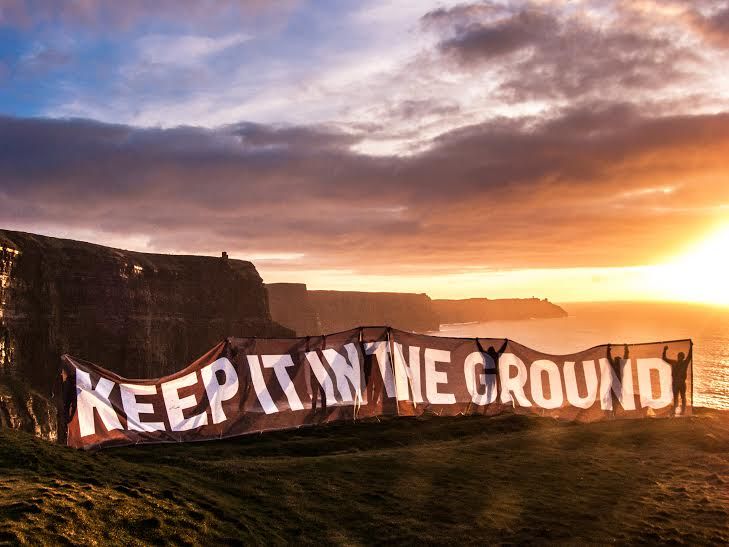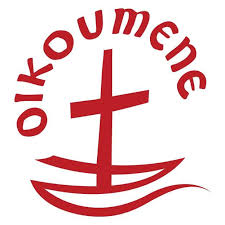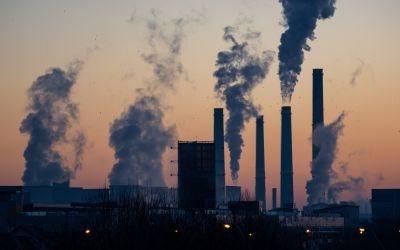The top 5 pledges to divest from fossil fuels
Targeting the finances of companies which extract and burn fossil fuels is now seen as an important way of combating dangerous climate change.

Targeting the finances of companies which extract and burn fossil fuels is now seen as an important way of combating dangerous climate change.
According to campaigners 350.org, 830 institutions with a total value of $6.01 trillion have already made different commitments to divest away from fossil fuels. These include a broad cross-section of society, including churches, pension funds, families and governments.
While some leaders recommend engagement with the fossil fuel industry, others feel more direct action is necessary to stem the rise in global temperatures.
In this piece, we highlight our top five picks from the gathering pace of divestment pledges made around the world.

New York
Both the Governor of New York State and the Mayor of New York City have announced significant plans to divest the local government’s holdings in fossil fuel assets.
In December 2017, Governor Andrew Cuomo said he wanted to cease all new investments in fossil fuel activities and create a roadmap to divest these assets from the state’s $200 billion pension fund.
The Common Fund looks after the retirement assets of over one million people, but has holdings in over 50 oil and gas companies. These amounted to “billions of public employee dollars”, according to the Governor. Mr. Cuomo stated the move would “lead to a more secure retirement fund for countless New Yorkers while also helping to achieve the state's clean energy goals."
The Mayor of New York, Bill de Blasio, closely followed suit in January by announcing the city’s five pension funds would also seek to remove an estimated $5 billion in over 190 fossil fuel companies.
“This is what climate leadership looks like”, responded Michael Brune at The Sierra Club.

The Rockefeller Brothers Fund
The Rockefeller Brothers Fund was founded in 1940 by the descendants of John D. Rockefeller, known for being one of the most successful oil businessmen in history.
Rockefeller built a huge empire around the Standard Oil company, which later became ExxonMobil, Chevron and other major oil companies still in existence.
The foundation’s strong connections to the petroleum industry, and resulting $870 million fortune, made its 2014 decision to divest from fossil fuels all the more historic.
In an interview with The Guardian, Valerie Rockefeller Wayne, who chairs the fund, said: “We all have a moral obligation…our family in particular – the money that is for our grant-making, and what we are doing now that helps fund our lifestyles came from dirty fuel sources”.
Its immediate focus was eliminating its exposure to coal and tar sands, which now represent a mere 0.1% of the fund. As of 2017, total fossil fuel exposure had been reduced to 1.7%.

World Council of Churches
A moral victory for the divestment campaign was achieved when the World Council of Churches, representing 345 religious bodies and over half a billion Christians around the world, ruled out any investments in fossil fuels.
While the organisation had no current assets to divest, the decision in 2015 showed how the campaign’s strength, and moral imperative, was being taken up by all sections of society.
The Council revealed its decision in one sentence of a policy document: “The committee discussed the ethical investment criteria, and considered that the list of sectors in which the WCC does not invest should be extended to include fossil fuels”.
Climate leader Bill McKibben said at the time that the council’s decision was “a remarkable moment for the 590 million Christians in its member denominations: a huge percentage of humanity says ‘this far and no further.’”

Norwegian Sovereign Wealth Fund
Norway has the world’s largest sovereign wealth fund, holding $1 trillion of assets, which represent 1.3% of all global stocks and shares.
It was established to invest the surplus from Norway’s thriving state-owned petroleum industry and acts as a pension pot for citizens, representing almost $200,000 per person in the country.
The fund has $38 billion in oil and gas companies, but this amount could soon be reduced to zero following a recommendation in late 2017 that the government dump all its petroleum holdings.
This recommendation can be traced to 2004 when a council was created to ensure the fund’s money was being spent along ethical guidelines. To date, it has directly excluded investing in companies which, for example, breach human rights or build nuclear weapons.
This powerful tool was extended to coal energy in 2014, and the fund has since divested from 77 companies in the industry.
More significant though was the recommendation from the fund's managers, Norge Bank, that the government remove all of its holdings in oil and gas, the historical source of its immense wealth.
“This will make the government’s wealth less vulnerable to a permanent drop in oil and gas prices”, said Deputy Governor Egil Matsen in an overtly non-political statement.
Whether the Norwegian government follows through on the proposal still remains to be seen. A decision is expected this year.

AXA
In recent years, the corporate insurance giant has become something of a climate leader and activist.
In 2015, it announced an initial €500 million divestment from the coal industry, which by the end of 2017 it increased to €2.4 billion. It has also completely removed its €700 million investment from the oil sands industry.
Just as significant is the company’s decision to stop insuring any coal-fired power plants and all oil sands pipelines, a major signal to other insurers to get out of this market.
AXA has also decided to increase investments in clean energy, which it says will reach €12 billion by 2020.
The company explained its reasoning in a recent statement: “If our world gets 4°C hotter, it will no longer be insurable”.
“We hope that our call for climate action will be heard by public and private-sector players, so that we may join forces and do everything we can to slow global warming and reduce its impact”
Header Image Credit: 350.org

_400_250_80_s_c1.jpg)




